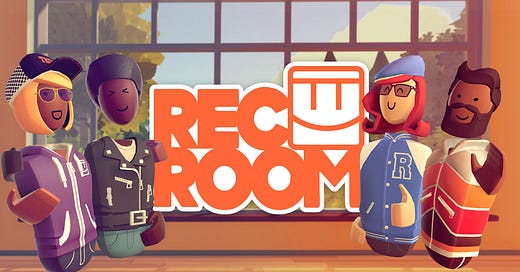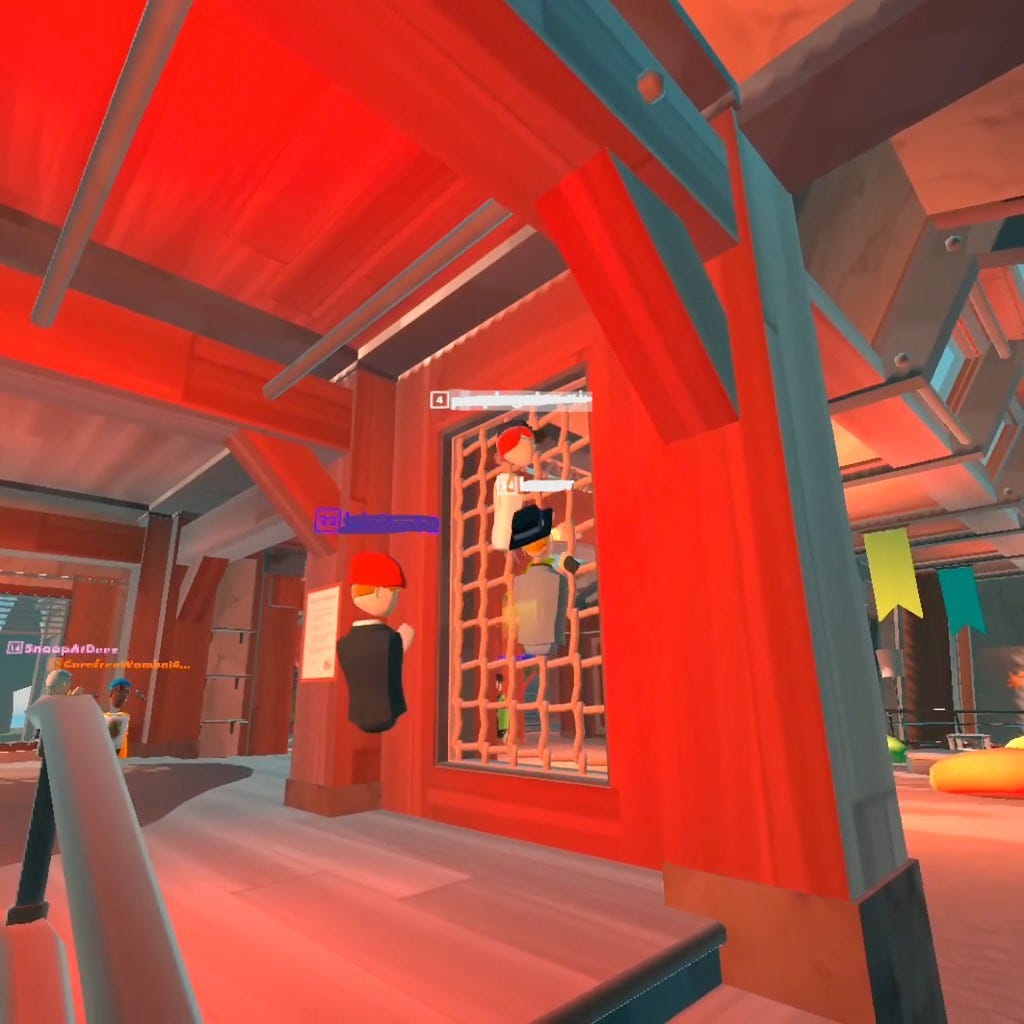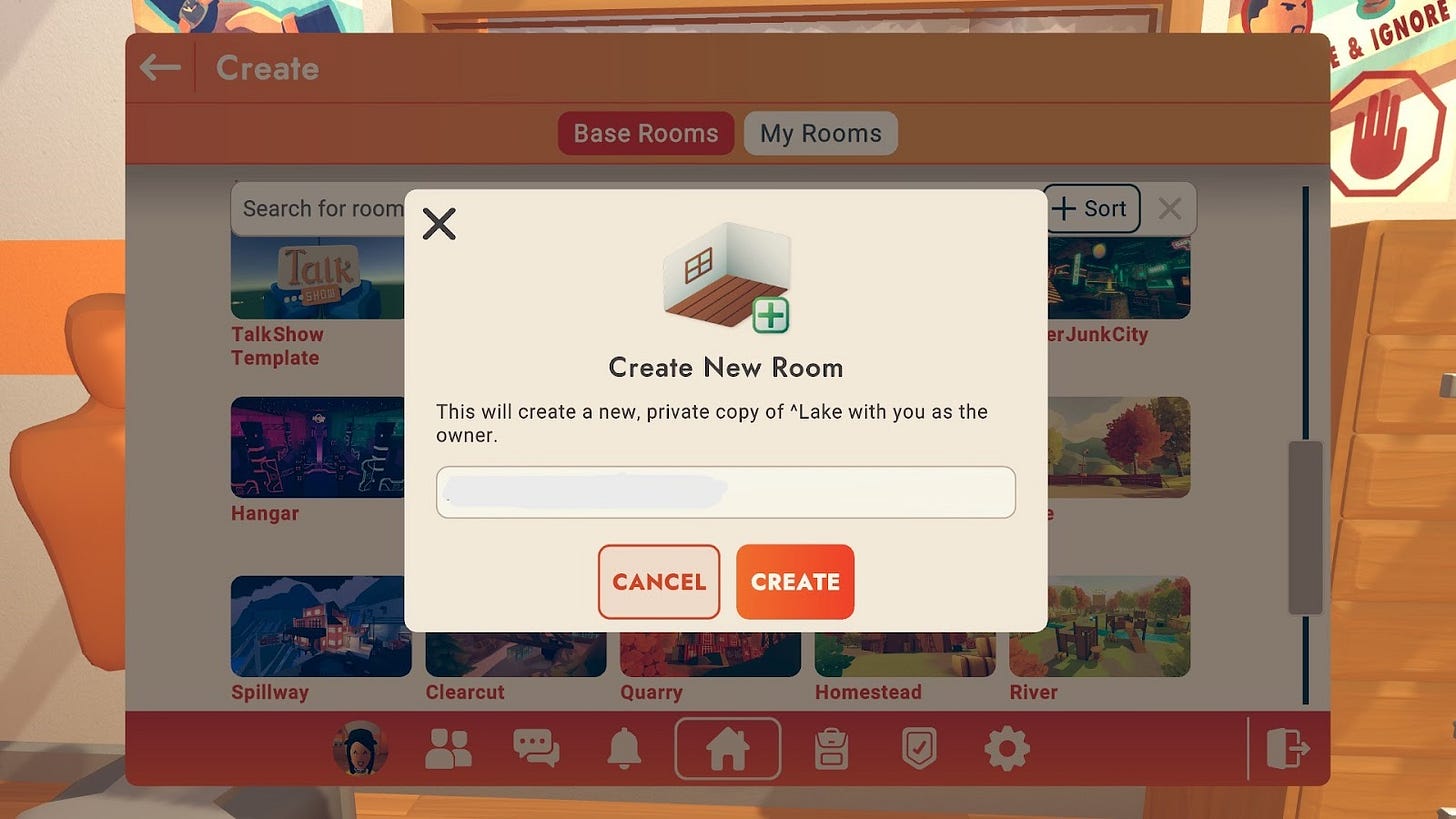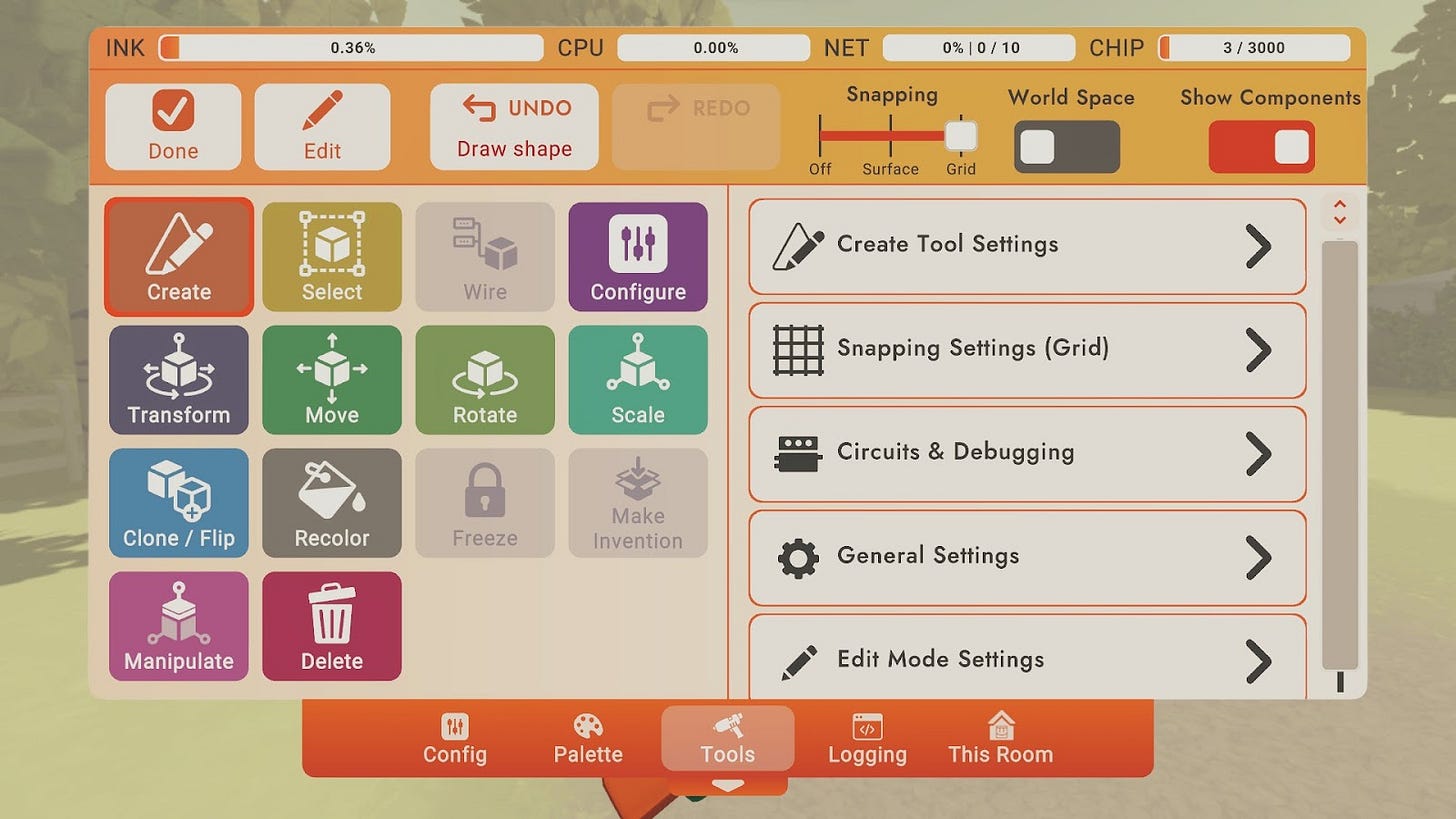Rec Room: the Metaverse platform for those young at heart
In this article, we would like to review Rec Room, a leading Metaverse platform on the market, in hopes to provide useful information and inspiration
The development of the Metaverse is now going through a competition of philosophies intensified by the establishment of the Metaverse Standards Forum and Open Metaverse Alliance for Web3 (OMA3™). There is much debate about what a real Metaverse is, who the key players are, when Metaverse will come, and whether the Metaverse should be centralized or decentralized, open or close.
However, the insights people can gain from this kind of debate are limited as the Metaverse is still at its early stage. It is impossible to perfectly predict what the Metaverse will be as the Metaverse is defined by what Metaverse companies collectively create. After all, products should be the ones that define what Metaverse is, not the key opinion leaders.
Metaverse platform: a critical battleground for Metaverse companies
Reviewing a popular Metaverse platform on the market by assessing its strengths, limitations, and how users react to its mechanism is probably a better way to find helpful implications than debating the fundamental definition of the Metaverse. A Metaverse platform itself is not equal to the Metaverse, the embodied Internet. However, it is worth discussing because Metaverse platform is a critical application of Metaverse technology and a common ground for many Metaverse companies, regardless of how they define the Metaverse.
In this article, we would like to review Rec Room, a leading Metaverse platform on the market, in hopes to provide useful information and inspiration to people who care about the development of the Metaverse.
(Source: Rec Room official website)
An immersive Metaverse platform for those young at heart
Compared to other Metaverse platforms such as Horizon Worlds, Spatial, VRChat, and Decentraland, Rec Room is a platform specifically attractive for those who are young at heart and looking for fun experiences. Here are three main reasons:
Young and non-toxic user community. People who log in to Rec Room for the first time tend to feel surprised about how many kids they meet on this virtual platform. Because of the game mechanics and cartoony user interface and avatar system, Rec Room attracts a lot of children who want to have fun, not just express their identities and build a social life there.
As children are actually the majority on Rec Room, the adult users there are generally more friendly and tolerant to other players and kids. However, if an adult wants to have conversations with another adult on this platform, they need to spend extra effort to find each other. Indeed, there are rooms for users who are over 18 years old on Rec Room. However, it’s common that those places are either empty or occupied by kids. Unlike Rec Room, other Metaverse platforms such as Horizon Worlds and VRChat users are harsher on younger users. At Meta Court, a virtual world built for users over 18 years old on Horizon Worlds, if people find any underage player in the room, they will vote and remove that kid with no hesitation and guilt.The “fun” culture. Due to the young and friendly user community and the fantastic interactions that users can have with the virtual objects, simple things can be very fun on Rec Room. Many Rec Room users are not specifically looking for something serious and sophisticated such as TV news, debate, or business meetings. They just enjoy those simple and fun activities. You may see a group of players gathering in front of a virtual net, trying to climb on it. You may also find players staying at Rec Center doing nothing but putting buckets on each other’s heads. You don’t need to be eloquent or charismatic to enjoy your life on Rec Room — you can just be a kid and simply have fun there.
(Source: photo taken in Rec Room)
Massive amount of virtual rooms for gameplay and hanging out. As of 2021, Rec Room has more than 12 million rooms with different fun experiences such as laser tag, paintball, and escape rooms. To put that number into context, in 2022, VRChat has only 25,000 community-created worlds and Horizon Worlds only has 10,000 virtual worlds built by its users.
Rec Room’s easy-to-use creator tool is the key reason behind this number – their creator tool is simple and accessible from both VR headsets and PC. And, if needed, users can find a lot of useful tutorial videos on their official Youtube channels.(Source: Photo taken on Rec Room)
Best-in-class cross-platform strategy and user motivation system
In 2021, the valuation of Rec Room increased from $1.25 billion to $3.5 billion within one year, and it already had 37 million users. There are two critical things that Metaverse platforms can learn from Rec Room:
Cross-platform strategy:
How to make Metaverse platforms accessible across different devices is a critical issue for Metaverse companies. Merely relying on AR/VR headsets is probably not the best strategy now since XR technology is still at its growing stage. Though there are more and more VR users over time, we have to admit that many mainstream users are still on traditional devices such as mobile and PC. It is crucial for Metaverse companies to understand the nature of different devices, find the value proposition for each device, and set down a cross-platform strategy. The user experiences of different devices should be customized because an experience that works on VR headsets may not be that attractive on other devices.(Rec Room’s mobile device interface)
Though started as a VR application, Rec Room is a good example for it successfully built fun experiences across mobile devices, game consoles, PC, and VR headsets. Despite users may feel the full potential of Rec Room when they are on VR headsets, other devices can still help Rec Room to engage with their users. For instance, users can find weekly featured rooms on Youtube and use Rec Room mobile app to contact their friends when they are unable to use their VR headsets; creators can use PCs to build their rooms so that, when they encounter any development issues, they can search for relevant tutorial videos or posts on the Internet.
User motivation and education mechanisms:
Compared to other platforms, Rec Room has best-in-class mechanisms to motivate users to explore more and come back. With an easy-to-understand orientation video, they give users a clear holistic view of what they can do on Rec Room at the first glance. Its level system further motivates users to play and earn the experience points to the next level. To encourage users to try new functions on the platform, Rec Room has a “Challenges” function which assigns orientation, daily, and weekly challenges to users. Once users finish those challenges, they can get experience points and level up. Last but not least, Rec Room has a token system that can motivate users to play more and create more.
The Metaverse playground for the future generation
Just like its description on App Store, with its well-designed mechanisms, comprehensive cross-platform strategy, abundant tutorial resources, strong user and creator community, and the “fun” culture, Rec Room is indeed “the best place to build and play games together.” However, as it is such a fun platform, it’s hard to imagine people doing things that are typically not fun on it – work, host business conferences, have intense debates about a certain economic topic, and so on. The user case may be limited because of the Rec Room’s unique user community and culture.
But for Rec Room’s fans, the above issue is probably not a problem – the idea of working on Rec Room may sound scary to them, and the reason why they spend time on Rec Room is not because of the term “Metaverse”. They are on Rec Room because it is “fun”. They just want Rec Room stays to be Rec Room.









Jane, this reminds me of any sandbox game that I have played in the past. Take for example, Garry’s Mod which at that time was not called metaverse, but today, if we take into consideration, what you have said about Rec Room, can be qualified as that.
I am curious to hear from you if you think that those platforms are actually representative of the metaverse or that companies take advantage of the title to generate additional revenue?
keep up the good work with rec room